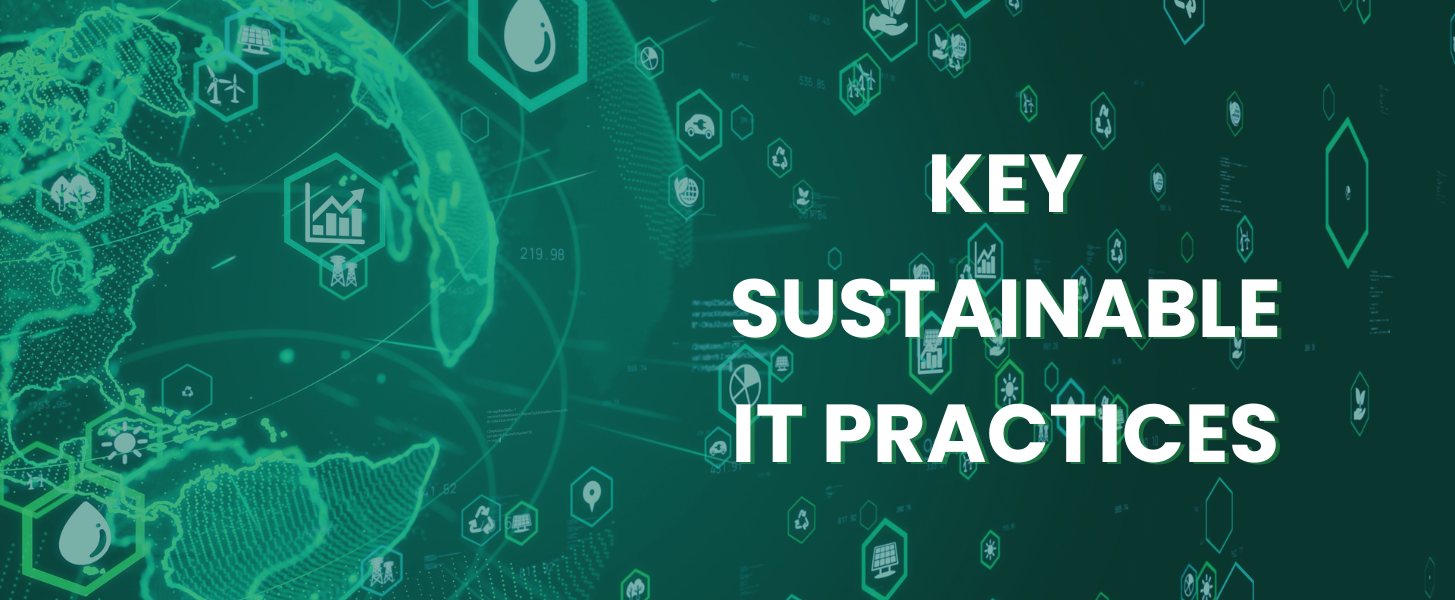
Sustainability is an essential concern in the technology sector. As organizations strive to reduce their carbon footprints and adopt more environmentally friendly practices, Managed Service Providers (MSPs) can lead initiatives that promote sustainable IT solutions. By implementing eco-friendly practices and guiding clients toward greener alternatives, MSPs can contribute to a healthier planet while enhancing their business models. This blog explores various sustainable IT practices that MSPs can adopt and promote to foster eco-friendly solutions in the tech industry.
The Importance of Sustainability in IT
The IT sector significantly contributes to global carbon emissions. According to a report by the International Energy Agency (IEA), data centers accounted for about 1% of global electricity demand in 2020. As the reliance on technology and data processing increases, this figure is expected to rise. Sustainable practices within the industry are imperative for several reasons:
Environmental Impact
The environmental impact of IT is significant, encompassing energy consumption, electronic waste (e-waste), and resource depletion. By adopting sustainable IT practices, organizations can significantly reduce their ecological footprints.
Regulatory Compliance
With many regions imposing stricter regulations on environmental impacts, businesses must comply. MSPs can help clients navigate these regulations by providing guidance on sustainable practices and ensuring compliance with local laws.
Corporate Responsibility
Consumers are increasingly aware of the environmental impact of the products and services they use. Businesses demonstrating a commitment to sustainability enhance their brand image and build customer loyalty. MSPs prioritizing eco-friendly solutions can position themselves as leaders in this space.

Key Sustainable IT Practices for MSPs
1. Energy-Efficient Infrastructure
Promoting energy-efficient infrastructure is a crucial step for MSPs. This includes:
- Optimizing Data Centers: MSPs should assess and optimize the energy consumption of their data centers by implementing advanced cooling technologies, virtualization, and efficient server utilization. Utilizing energy-efficient hardware can significantly reduce energy usage.
- Cloud Solutions: By promoting cloud computing solutions, MSPs can help clients minimize their on-premises infrastructure, leading to reduced energy consumption and lower carbon emissions. Cloud providers increasingly invest in renewable energy to power their data centers, making cloud solutions a greener option.
- Renewable Energy Sources: MSPs should consider sourcing energy from renewable sources, such as solar or wind, for their operations and encourage clients to do the same. Utilizing green energy can dramatically lower carbon footprints.
2. E-Waste Management
The rapid pace of technological advancement has led to an increase in electronic waste (e-waste), which can harm the environment if not disposed of properly. MSPs can manage e-waste through:
- Recycling Programs: Establishing recycling programs for old equipment and devices helps ensure responsible disposal. MSPs can partner with certified e-waste recycling companies to facilitate this process.
- Refurbishment and Resale: Instead of disposing of outdated equipment, MSPs can promote refurbishment and resale, reducing waste and extending the lifecycle of technology.
- Educating Clients: MSPs should educate clients about the importance of proper e-waste disposal and the environmental impact of improper disposal. This can include providing information on local e-waste recycling centers and resources.
3. Green Software Development
Sustainable IT practices extend to software development. MSPs can advocate for green software practices by:
- Optimizing Code: Encourage developers to write efficient code that requires less processing power and energy. Optimized applications consume less energy, contributing to overall sustainability.
- Promoting Energy-Efficient Algorithms: MSPs can guide clients in selecting or developing software that utilizes energy-efficient algorithms, especially for data-intensive applications. This reduces the computational load on servers and can significantly lower energy consumption.
- Utilizing Open Source Solutions: Open-source software can be more sustainable, as it often allows for better optimization and less bloat compared to proprietary solutions. MSPs can explore open-source options for their clients, helping to reduce resource consumption.
4. Remote Work Solutions
The shift toward remote work can have positive environmental effects if managed correctly. MSPs can promote sustainable remote work practices by:
- Cloud-Based Collaboration Tools: Encourage clients to adopt cloud-based collaboration tools that reduce the need for physical commuting and office space. This shift can significantly lower the carbon footprint associated with employee travel.
- Green Home Office Solutions: Provide guidance on creating energy-efficient home office setups, including recommendations for energy-efficient equipment and practices. This may include promoting the use of energy-efficient monitors, power strips, and other devices.
- Flexible Work Policies: Advocate for flexible work policies that allow employees to work from home part-time or full-time, reducing the environmental impact of daily commutes.
5. Supply Chain Sustainability
MSPs can promote sustainability within their supply chains by:
- Partnering with Eco-Friendly Vendors: MSPs should collaborate with vendors and suppliers that prioritize sustainability, such as companies using environmentally friendly materials and renewable energy sources.
- Evaluating Procurement Policies: Assess and modify procurement policies to favor sustainable products and services. This can help create a ripple effect, encouraging other businesses to adopt similar practices.
- Transparency and Reporting: Promote transparency in supply chains by providing clients with information on the environmental impact of the products and services they use. This can help organizations make informed decisions about their purchases.
6. Employee Training and Engagement
Investing in employee training and engagement initiatives fosters a culture of sustainability within organizations. This includes:
- Sustainability Workshops: Organize workshops and training sessions to educate employees about sustainable practices and the importance of reducing the company’s environmental impact.
- Encouraging Employee Initiatives: Encourage employees to propose and lead sustainability initiatives, such as recycling programs or energy-saving campaigns, fostering a sense of ownership and responsibility.
- Recognizing Sustainable Efforts: Implement recognition programs that reward employees for their contributions to sustainability efforts. This can help motivate staff and reinforce the importance of eco-friendly practices.
MSPs play a crucial role in promoting sustainable practices within the technology sector. By adopting energy-efficient infrastructure, managing e-waste responsibly, promoting green software development, supporting remote work initiatives, fostering sustainable supply chains, and engaging employees, MSPs can make a significant impact on reducing the carbon footprint of their clients and the industry as a whole.
Prioritizing sustainability not only contributes to a healthier planet but also enhances marketability and competitiveness. As businesses and consumers increasingly seek eco-friendly solutions, MSPs embracing sustainable IT practices will be well-positioned to thrive in the evolving technological landscape. Adopting these practices is not just a trend; it’s a responsibility that every MSP should take to heart for the future of our planet.

